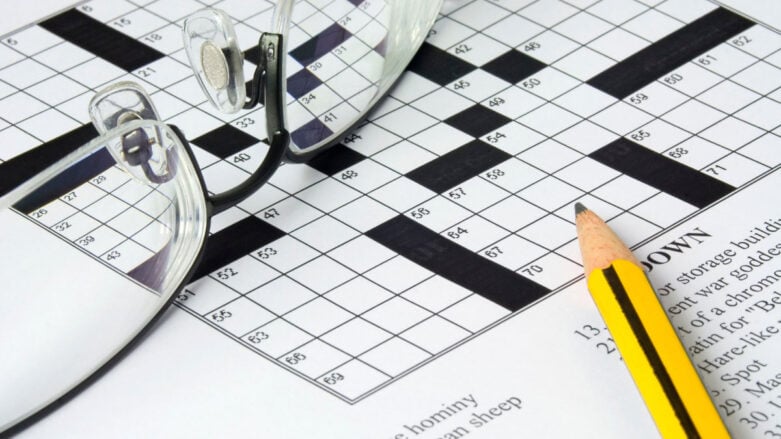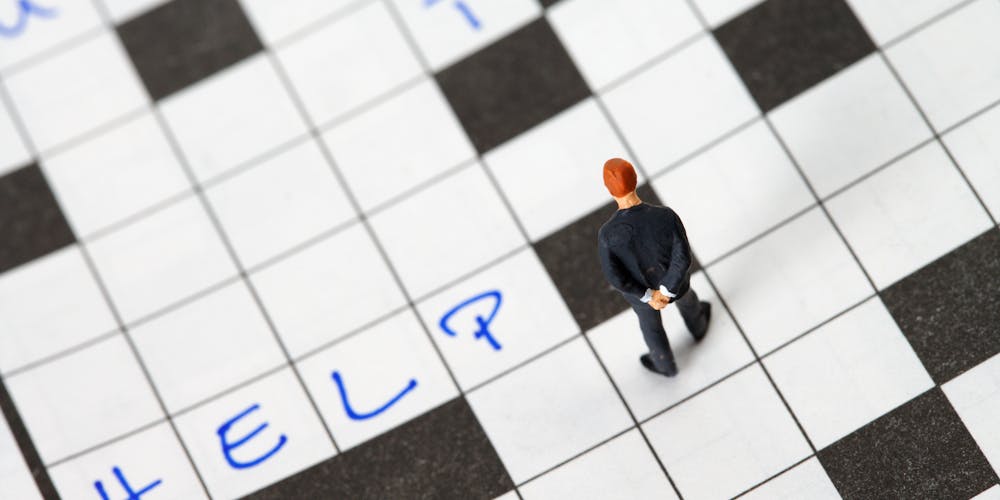When searching for the up in the air crossword clue, enthusiasts of word puzzles often seek out the perfect combination of letters, context, and meaning. Crossword puzzles have long captivated minds as they challenge vocabulary, lateral thinking, and general knowledge. “Up in the air” is a versatile phrase that can lead to varying answers based on the specific context of the puzzle.
In this article, we will explore the nuances surrounding this popular crossword clue, delving into its various interpretations, related phrases, and how it fits into the broader world of crossword puzzles.
Understanding “Up in the Air”

The phrase “up in the air” carries multiple meanings, ranging from uncertainty to a literal sense of being elevated. In the realm of crossword puzzles, understanding these interpretations can significantly influence the clues and solutions you encounter.
The Literal Interpretation
At its core, “up in the air” denotes something physically elevated or suspended, creating a vivid image of items floating above ground.
This interpretation invites puzzlers to think about objects frequently associated with heights or airborne activities—such as balloons, planes, or kites. These words not only align with the physical aspect of the phrase but also evoke imagery that can deepen our understanding of the elusive nature of this crossword clue.
For instance, when presented with a crossword grid featuring hints related to flight or elevation, answers like “plane” or “kite” might immediately come to mind. However, it’s essential to remember that crossword clues often rely on creative wordplay, so other possibilities may lurk beneath the surface.
The Figurative Sense
Another common interpretation of “up in the air” involves ambiguity or uncertainty. This essence transforms the phrase into a metaphorical landscape where decisions, plans, or even outcomes hang precariously without resolution.
In this light, answers could include terms like “uncertain,” “pending,” or “undecided.” These answers reflect the idea that something isn’t finalized and is still subject to change, mirroring how life often feels unpredictable.
Puzzles frequently draw from everyday expressions, making it vital for players to connect with the emotional resonance of the language. This deeper connection with the word’s dual meaning may enhance your ability to solve clues that contain similar phrases.
Context Matters
Context plays an integral role in determining the correct answer to a crossword clue. The placement of “up in the air” within the puzzle can provide crucial hints that guide solvers toward the intended solution.
Consider the surrounding clues and the number of letters required. For instance, if the clue is paired with others relating to emotions or decisions, one may lean towards answers emphasizing uncertainty. Conversely, if adjacent clues hint at travel or aviation, a more literal interpretation might be necessary.
Ultimately, mastering crossword clues requires a mix of intuition, creativity, and contextual awareness. Each puzzle presents a unique challenge, so honing these skills can lead to improved solving abilities and greater enjoyment of the game.
Crossword Clue Variations

Crossword constructors love to play with synonyms and related phrases. Consequently, exploring variations of the up in the air crossword clue can expand your vocabulary while enhancing your problem-solving skills.
Synonyms and Related Terms
Synonyms are instrumental in crossword creation, as they allow for diverse clues while leading to the same answers. Common synonyms for “up in the air” include:
- In limbo
- Undecided
- Uncertain
- Hanging in the balance
These terms encapsulate the essence of uncertainty and can appear in numerous forms across different puzzles. Recognizing these variations not only broadens your word bank but also equips you with alternate angles when faced with tricky clues.
The use of synonyms also highlights the importance of reading comprehension and linguistic nuance. Constructors often employ clever phrasing to trick solvers into overlooking simpler answers. By expanding your lexicon, you’ll develop a keener eye for these subtleties.
Cultural References
Language isn’t created in a vacuum; cultural references can shape how phrases are interpreted. For example, literature, films, and music often utilize the expression “up in the air.”
Books that delve into themes of uncertainty or existential struggle may feature characters whose lives feel suspended in midair, which can inspire constructors to incorporate such elements into their clues.
By identifying thematic connections among various cultural artifacts, solvers gain a richer understanding of the expression’s significance. Not only does this deepen the appreciation for the game, but it also fosters a sense of community among puzzle enthusiasts who share insights and discoveries.
Wordplay and Puns
Wordplay is the lifeblood of crossword construction, and “up in the air” is no exception. Engaging with puns and playful interpretations of this phrase can offer unexpected solutions that surprise even seasoned solvers.
For example, a clue that reads “Not grounded” might cleverly hint at answers beyond the obvious. Utilizing humor and wit, constructors can create layers of meaning that invite solvers to consider less straightforward possibilities, fostering an exhilarating experience.
Engaging with wordplay can also help develop cognitive flexibility, allowing solvers to approach a single clue from multiple perspectives. This skill is fundamental not only in crossword puzzles but also in critical thinking and problem-solving in everyday life.
Strategies for Solving Crossword Clues

Navigating the world of crossword puzzles can sometimes feel daunting, especially when dealing with vague or multifaceted clues. However, implementing effective strategies can make the process enjoyable and rewarding.
Familiarize Yourself with Common Themes
One of the best ways to tackle crossword clues, including the up in the air crossword clue, is by familiarizing yourself with common themes and patterns.
Crossword puzzles often follow certain conventions, drawing from popular culture, historical events, scientific terminology, and more. By regularly engaging with a variety of puzzles, you’ll naturally attune your mind to recurring motifs, allowing you to decipher clues with greater ease.
For instance, knowing that “plane” often refers to air travel or geometry can streamline your thought process when confronted with related clues. This familiarity creates a mental toolkit that aids in solving puzzles efficiently.
Break Down the Clue
When faced with the up in the air crossword clue, breaking it down into smaller components can clarify its meaning. Analyze each word individually and consider possible connections between them.
Does the clue suggest something literal or metaphorical? Are there synonyms that could fit within the context of the puzzle? By dissecting the wording, you may unearth hidden meanings or alternative interpretations.
Additionally, consider the letter count provided by the puzzle. Often, the number of spaces available for the answer can guide you toward more precise options, narrowing the range of possibilities.
Collaborate and Share Insights
Crossword solving does not always have to be a solitary endeavor. Engaging in collaborative efforts with friends or family members can spark new ideas and perspectives.
Discussing clues aloud often leads to breakthroughs as different viewpoints can reveal insights that one individual might overlook. Additionally, sharing favorite resources—such as websites, books, or apps—can provide additional support to those struggling with challenging puzzles.
Collaboration fosters a sense of community that enriches the experience of solving. It allows for shared victories and collective learning, transforming what can sometimes feel like a solitary challenge into a social event.
FAQs

What does “up in the air” mean in crossword puzzles?
In crossword puzzles, “up in the air” can refer to both literal and figurative interpretations. It may relate to something physically elevated or denote uncertainty regarding plans or decisions.
How can I improve my crossword-solving skills?
To enhance your crossword-solving abilities, familiarize yourself with common themes, practice regularly, break down clues, and collaborate with others for fresh insights.
Are there any resources for crossword enthusiasts?
Many resources are available, including crossword puzzle books, online platforms, and mobile apps dedicated to word games. Popular websites like Crossword Nexus or the New York Times Crossword offer great avenues for practice.
What types of words or phrases commonly appear in crosswords?
Crossword puzzles often incorporate common words, idiomatic expressions, cultural references, and synonyms. Familiarity with these elements can enhance your solving experience.
Why do constructors use ambiguous language in clues?
Constructors employ ambiguous language to challenge solvers and encourage lateral thinking. Clever phrasing can lead to multiple interpretations, making the puzzle-solving experience more engaging and dynamic.
Video
Conclusion
The up in the air crossword clue serves as a fascinating entry point into the world of word puzzles, embodying the essence of uncertainty and creativity. By exploring the phrase’s various interpretations, recognizing synonyms, and employing effective solving strategies, crossword enthusiasts can elevate their skills and transform the challenge into a delightful pastime.
Whether approached with a literal mindset or embraced through its figurative implications, the beauty of crossword puzzles lies in their ability to engage and inspire. With practice, curiosity, and a willingness to learn, anyone can unlock the secrets hidden within the grid and enjoy the exhilaration of piecing together words, one clue at a time.
